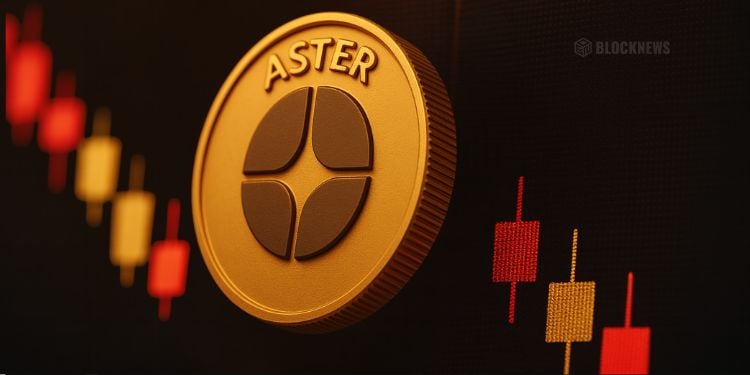- Aster DEX postponed its ASTER token airdrop to October 20 after discovering allocation mistakes affecting user rewards.
- Influencer Quinten 048.eth criticized the distribution, claiming insiders took most of the tokens despite high community engagement.
- The team is rechecking data, updating allocations, and offering users a 48-hour USDT refund option once fixed.
Aster DEX has officially delayed its ASTER token airdrop to October 20 after discovering errors in the original allocation data. The team found that several users received smaller token amounts than they should’ve based on the final snapshot of their holdings. These snapshots are meant to track participation across reward epochs, determining how many tokens each user earns. After identifying inconsistencies, the Aster team announced it would recheck all allocations before resuming the drop.
The team plans to publish updated numbers soon and give users a 48-hour window to decide whether they’d prefer a USDT refund instead of the tokens. The refund option was added after members of the community raised questions about fairness and accuracy. Aster DEX admitted the issue came to light only after feedback from users started rolling in, prompting a full review of the reward calculations.
Influencer Sparks Controversy
Influencer Quinten 048.eth shared his frustration online, saying he received just 338 ASTER tokens despite driving over $100 million in referral volume and bringing in more than 250 new users. He accused Aster and Binance of “farming their own airdrop,” alleging that insiders took around 95% of the total rewards while the rest of the community had to split what was left. His claims quickly gained attention—so much that Binance founder CZ responded, asking if Quinten’s numbers were real. Quinten doubled down, saying his math lined up with the distribution data.
According to him, referral points made up most of the reward calculation system, leaving smaller contributors—like traders or liquidity providers—at a disadvantage. The dispute has fueled community debates about fairness, transparency, and how decentralized Aster DEX truly is.
Platform Ties and Eligibility Details
Aster DEX isn’t just another decentralized trading platform—it’s connected to some big names. Binance founder Changpeng Zhao serves as an advisor, while his firm YZi Labs reportedly has a stake in the project. The platform competes with others like Hyperliquid, offering users the chance to earn points through trading, holding tokens, or providing liquidity. To qualify for the airdrop, participants needed at least 10,000 Rh points.
The platform also explained that even users with the same number of points might receive slightly different allocations, depending on their activity and adjustments in the algorithm. Roughly 154,000 wallets made the cut for the second stage of Aster Genesis, and once distribution resumes, all tokens will be immediately claimable—no lock-ups, no waiting period.














